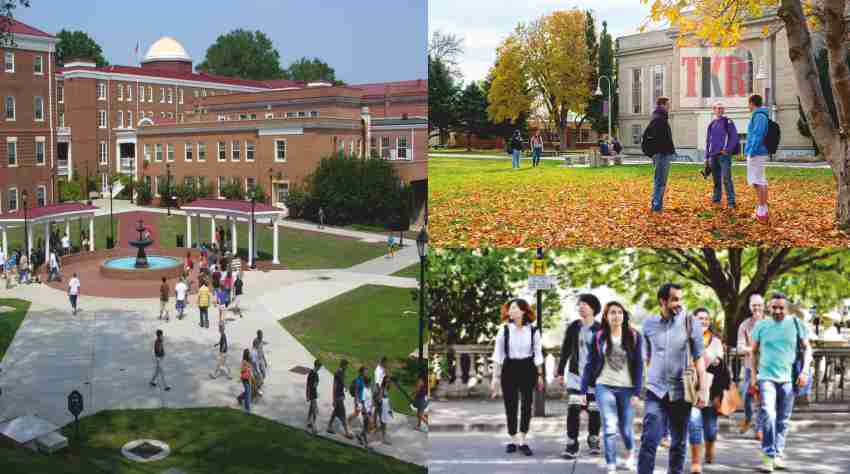The evolving nature of global higher education focuses on inclinations towards gaining knowledge in the society. Education around the world continues to progress and expand access to more students. While access to education continues to rise, there are still concerns with completion rates, gender, and class disparity. One of the important components of any education system is the student for whom the entire machinery works. High levels of trust and personal belongingness perceived by students contribute to the value of a university. Students’ needs are always given high priority in the policies that push for the corporatization of universities providing higher education.
International Higher Education
The changes with respect to demographics and countrywide strategies for higher education are some of the issues impacting the university education. It has become common for the national governments to design educational strategies that include or focus on the internationalization of higher education. Most of the times, the justifications for these national level internationalization strategies include policies for economic growth as well as the recruitment of skilled migration for labor shortages. Reduced financing for higher education may impact national-level scholarship schemes for higher education movement.
In recent years, employers’ have experienced a shortfall in the level of skills possessed by students passing out of the universities. Rightly so, because the pace at which the industrial world is moving, universities are not able to catch up. The demand for effective education will result in preparing higher education graduates with workforce-ready skills. All stakeholders are pushing for more cooperation between industry and higher education through various initiatives, partnerships, and creative collaborations for further development. Higher education establishments need to stay ahead of the curve to ensure that the graduates attain the right skills that are workplace-ready and transferable.
Expectations of Students
Students are experiencing a change in their outlook towards learning and consider the modern aspects while selection of an institution. The factors like the brand, ranking, and reputation of an institution are becoming less relevant compared to their individual need and budget. The career aspirations and the availability of right courses at affordable fees are also primary factors for their decision to take the admission. Reports claim that the quality and value of a university including costs, career prospects, and student experience have increasingly become important in the student choice process. International students are found to seek out high-quality experiences. That may range from accommodations facilities on the campus to accessible and valuable career services to students.
The results of recent survey reports highlight that there is a downward trend in perceptions of value which is not linked to poorer quality. The report suggests that the value of educational services is influenced by a complex combination of factors including a shift in what students expect from their university and the overall cost of education along with fees for universities. The recommendations were given to universities and other regulatory bodies on how to work together to address student’s priorities in this new landscape.
How Students Relate to Universities?
Students value the collective and enlightening relationship they have with their university. Most students recognize that the relationship between students and universities is different which can never be compared with that of a traditional transactional consumer relationship. Students are co-producers of their student experience, but they do have expectations of their course and professors.
Consistency is valued highly by students and institutional or course closure may affect their trust levels. Course changes are not perceived as inherently destructive but universities need to communicate the changes in curriculum or the course design and treat students fairly. Student perceptions of value for money are influenced by degree outcomes and the process of studying.
Responsible Universities Propagate Trust
An important element of defending the students’ trust is universities’ ability to sustain the frameworks that influence students’ choices of courses to study. Universities need to ensure that an effective process is in place and have an appropriate timeline for informing students and enacting changes.
Students are extremely diverse in their background and learning needs. Universities may face challenges while determining what students want and how best to provide it. Students also place a high value on being assured on the choice of university and expect that it is an institution that cares about their best interests. It should make provisions for them through their studies and offers the facilities and guidance for their future careers.
A Unique Relationship with Students
Students regard their relationship with their university as unique and emphasize engagement, and their personal and educational development both during and beyond the course, as priorities. Students cannot be categorized as customers for educational institutions. Sometimes it will be acceptable if they can be considered as primary products of universities. Central to this idea is the trust and confidence that students have in their university to create an environment where they can flourish in knowledge. Students should be able to get the most from their studies and the years they spend in the learning stage of their life. The challenges are plenty for the authorities in higher education and the industry stakeholders of the education sector.
The education system will continue to be shaped through the global phenomena of migration and the world becoming smaller. Higher education establishments will continue to focus on producing and developing quality student experiences with the aim of retaining international students. The future strategies should focus on maintaining a supportive and operating environment that protects students and allows a positive educational relationship with their university.









